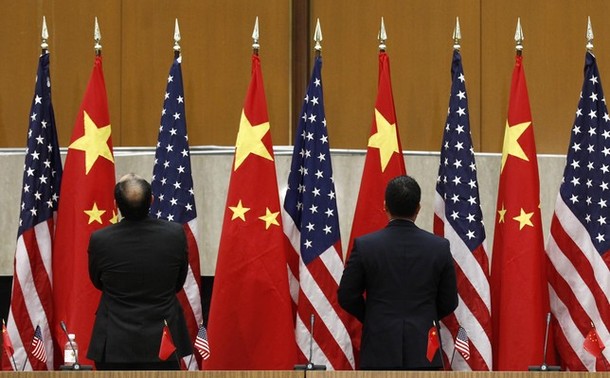“The ides of March have come” says Shakespeare’s Julius Caesar. Standing in the Vatican’s Saint Peter’s Square Tuesday, watching on a big, incongruous screen the princes of the Roman Universal Church file into mass I was struck by the power of this moment when a new pope is chosen to lead the world’s 1.3 billion Catholics. I am not a Catholic and I happened to be walking past St. Peter’s but one could feel the electricity of change in the air. The sense of occasion was made all the more powerful by the tented media city that had sprung up all around St Peter’s. It was as though Charlemagne’s army had returned to enforce the emperor’s fiat.
Something else was apparent: the interaction of the ancient with the utterly modern, of faith, belief and identity and how across much of the world that friction is casting an ancient world in a new light but only so often to highlight old thinking. There is almost a presumption of future conflict which sure enough will guarantee it.
It is in the domain of power politics that the interaction of old and new with power, prejudice, and paranoia is now more intense than at any time since the end of the Cold War. Nowhere is this more apparent than in the world’s most important power relationship, that between the United States and China. Naturally, as a Briton and a European my instincts are for and with democratic America. That said, there is nothing in my soul that is particularly anti-Chinese, although like many westerners I am having to force myself to recognize the consequence of Europe’s willful decline and learn to think anew about this new power world.
Equally, I am no European apologist for China. There are many aspects of China’s one-party rule that I find disturbing and there are quite a few aspects of China’s increasingly aggressive foreign and security policy that worry me. While there is no reason to believe conflict is imminent, as China has clearly invested in a system the West invented, danger (the ides of March) lurks.
The metaphor of future conflict is the developing cyber cold war. A close friend of mine has just come back from Beijing where he attended a high-level conference on all things cyber. What struck him was the extent to which American concerns about China’s strategic hacking are mirrored in Chinese concerns that the Americans are embedding software in programs that will enable Washington to pirate Chinese secrets.
That the Chinese are carrying out strategic hacking there can be no doubt. This is all part of the presumption of future conflict generated by then strategic hyper-competition that is emerging between China and the United States. And, for the sake of fairness, I will avoid being dewy-eyed about my American allies. I am old enough to recall those long lost days back in the 1980s when the United States routinely exaggerated Soviet military capability to justify a huge defense budget and control over allies. The American tendency towards power, prejudice, and paranoia is certainly no less pronounced than the Chinese. Sadly, it is just such power, prejudice, and paranoia (not Europe’s willful weakness) that is today setting the rules of this new/old strategic game.
Therefore, in his humble way Pope Francis seemed to be saying something new to all of us – Catholic and non-Catholic alike; we still have free-will and the power of choice. We can decide not to presume future conflict. We can if we want to change the terms of the engagement with each other and in so doing better understand the perspective of the other. Even a hard-bitten Realist like me can recognize the dangerous logic of so embracing the past that we instinctively repeat it.
That was what I was trying to do in St Peter’s Square–challenge myself to see the world through the perspective of a faith I was brought up to distrust. Ironically, so much of my healthy English realism about Brussels and the EU has its roots deep in the Protestant Reformation of the sixteenth century when England stood alone against the Catholic princes of Europe.
Have I undergone some Damascene conversion? No. Do I think the world will become less adversarial? Probably not. However, I think it wrong to assume that conflict and friction are the natural state and that somehow the period of relative (and I stress relative) strategic calm of the recent past will automatically be replaced by confrontation and friction and ultimately conflict and war between America and China. The idea that a new East-West showdown is sooner or later inevitable to establish the world’s new strategic pecking order is sadly implicit in far too much that is written these days.
The risk is certainly there. For as Shakespeare wrote, “The ides of March have come. Ay Caesar, but not gone.”
Julian Lindley-French is a member of the Atlantic Council’s Strategic Advisory Group. This essay first appeared on his personal blog, Lindley-French’s Blog Blast.
Image: us-china%20relations_flags.jpg
